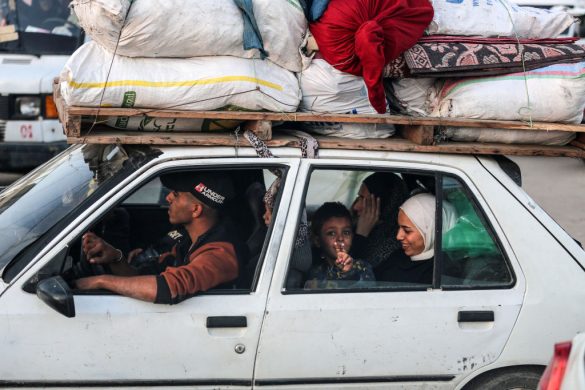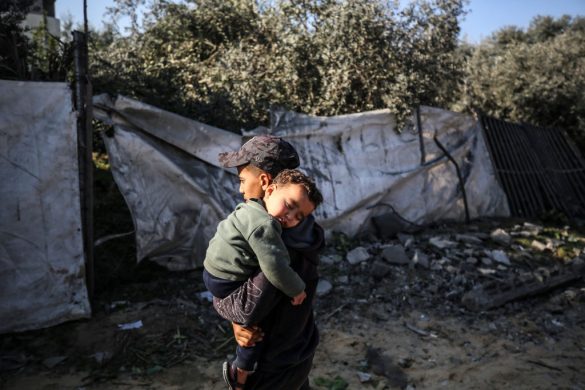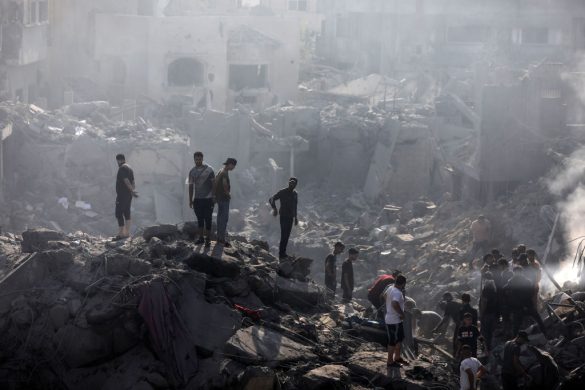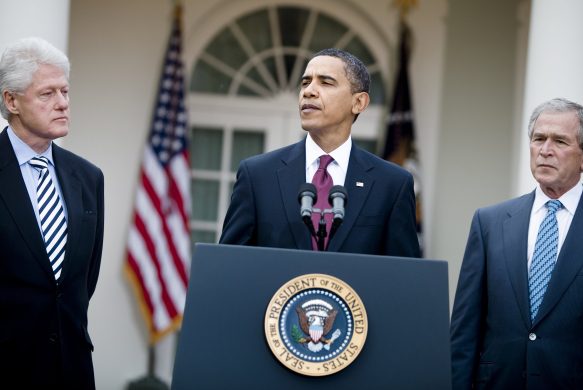De seneste terroraktioner i Libyen, herunder halshugningen af 21 kristne egyptere, understreger den akutte fare, som Libyen og hele regionen befinder sig i, advarer FN-udsending. Islamisk Stat udnytter det politiske kaos i landet, siger han.
18 February 2015 (UN News): Recent savage terrorist acts – culminating in the beheading of 21 Coptic Christians – highlight the “imminent danger” confronting Libya, its people and the wider region, the United Nations envoy to the country warned today, urging swift agreement among the main parties on resolving the crisis and ending the military and political conflict.
Strongly condemning all the “horrific and brutal acts” witnessed in recent weeks in Libya, Bernardino León, the Secretary-General’s Special Representative and head of the UN Support Mission in Libya (UNSMIL), underscored in his briefing to the Security Council that “no words can express my outrage and revulsion at the beheading of 21 men, including 20 Egyptian nationals who were targeted for no other reason than their religious belief and nationality.”
Countless incidents
Yet, that atrocity should not eclipse the barbarity of other acts committed by extremist groups, including the Islamic State in Iraq and the Levant (ISIL) and Ansar al-Sharia.
Speaking via video conference from Tripoli, Mr. León pointed out that in November, three young activists were beheaded in Derna; towards the end of December, a young Egyptian doctor and his wife, also Copts, were brutally murdered at their home in Sirte; their daughter, who was abducted, was found dead on the city’s outskirts the next day.
“These are but a few of the many countless incidents which every day affect thousands of civilians, who bear the brunt of war and displacement and are victims of serious violations of human rights and international humanitarian law, especially in areas like Benghazi,” said Mr. León, warning that without a swift agreement among opposing Libyan political factions, the country, its people and the wider region were at risk of even more turmoil.
Exploiting the political crisis
Indeed, he said, ISIL and its affiliates over the past weeks had shown blatant disregard for Libya’s sovereignty and state institutions.
The capture of public installations in Sirte and the attack last month on the Corinthia Hotel in Tripoli reflect a growing ability and determination on the part of ISIL to exploit the political crisis and consequent security vacuum to consolidate its presence and influence across Libya.
Mr. León said that extremist groups with radical ideologies, associated with Al-Qaida, have been on the rise since the end of the armed conflict in 2011, with Ansar al-Sharia’s strongholds in Benghazi and Derna already constituting a serious terrorist challenge in the context of the Libyan crisis. These have served as platforms for mobilizing support for ISIL.
“[ISIL] has already shown its potential for destruction in Iraq and Syria. Operating across borders, it has mobilized recruits and significant financial resources, including through the use of social media,” he said, explaining that in Libya, the group has found fertile ground in the growing post-revolution political instability, capitalizing also on the weakness of state institutions and state security sector.
A steady influx of foreign nationals has bolstered its ranks and now threatens to introduce yet another dimension to the conflict in Libya.
Læs hele artiklen hos UN News














